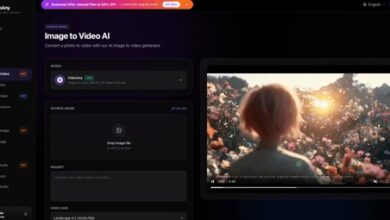QaaS Technology: Empowering the Future with Quantum Computing
Unlocking New Horizons in Computing with Quantum-as-a-Service

Quantum computing has long been heralded as the next frontier in technological advancement, promising to solve problems currently intractable for classical computers. As this technology inches closer to practical implementation, Quantum-as-a-Service (QaaS) is emerging as a pivotal model to democratize access to these powerful computational resources. This article explores the transformative potential of QaaS technology, its applications, and how it is poised to revolutionize various industries.
What is QaaS Technology?
Quantum-as-a-Service (QaaS) is a cloud-based service that gives users access to quantum computing resources. Similar to other “as-a-service” models like Software-as-a-Service (SaaS) and Infrastructure-as-a-Service (IaaS), QaaS allows users to leverage quantum computing capabilities without the need to invest in or maintain expensive quantum hardware. This service is particularly beneficial for researchers, scientists, and businesses looking to harness the power of quantum computing for complex problem-solving and innovation.
The Mechanics of Quantum Computing
At the heart of quantum computing are quantum bits, or qubits, which differ significantly from classical bits. While classical bits are binary and can exist in one of two states (0 or 1), qubits can exist simultaneously in multiple states due to superposition and entanglement principles. This enables quantum computers to process vast amounts of data in parallel, offering unprecedented computational speed and efficiency.
Benefits of QaaS Technology
- Accessibility: QaaS eliminates the need for organizations to invest in costly quantum hardware. By providing access to quantum processors via the cloud, QaaS makes this cutting-edge technology accessible to a broader range of users.
- Scalability: Users can scale their quantum computing resources up or down based on their needs, paying only for what they use. This flexibility is crucial for managing costs and optimizing resource utilization.
- Innovation: QaaS enables rapid experimentation and innovation, allowing researchers and developers to test and refine quantum algorithms without physical hardware limitations.
Key Players in the QaaS Market
Several major technology companies have developed QaaS platforms, each offering unique features and capabilities:
- Google Quantum AI: Google offers Quantum Playground and Sycamore, which provide access to advanced qubit processors and tools for developing quantum algorithms.
- IBM Q Experience: IBM’s platform includes access to quantum processors and the Qiskit development toolkit, making it a versatile environment for quantum computing research.
- Microsoft Azure Quantum: Microsoft’s Azure Quantum platform supports various hardware types and offers a comprehensive suite of tools for quantum development.
- Amazon Bracket: Amazon’s QaaS platform allows users to run hybrid algorithms that combine quantum and classical computing, supported by the Amazon Quantum Solutions Lab.
Applications of QaaS Technology
Healthcare and Drug Discovery
Quantum computing holds immense potential for revolutionizing healthcare, particularly drug discovery. By simulating molecular interactions at the quantum level, researchers can identify promising drug candidates more quickly and accurately. QaaS enables pharmaceutical companies to leverage quantum algorithms for complex simulations, accelerating the development of new treatments.
Financial Modeling
The financial industry can benefit significantly from the enhanced computational power of quantum computers. QaaS allows financial institutions to perform complex risk assessments, optimize portfolios, and execute high-frequency trading strategies with greater precision and speed. Quantum algorithms can also improve cryptographic techniques, ensuring more secure transactions.
Climate Modeling and Sustainability
Accurate climate modelling requires processing vast amounts of data to predict weather patterns and assess environmental changes. Quantum computing, with its ability to handle large datasets and perform complex simulations, can provide more accurate climate models. QaaS makes these powerful tools available to researchers and policymakers, aiding in developing strategies to combat climate change.
Supply Chain Optimization
Quantum computing can optimize supply chains by solving complex logistical problems that involve multiple variables and constraints. QaaS enables companies to model and optimize their supply chains more efficiently, reducing costs and improving delivery times. This is particularly valuable for manufacturing, retail, and logistics industries.
Challenges and Future Prospects of QaaS Technology
Despite its promise, QaaS technology faces several challenges that need to be addressed for widespread adoption:
- Error Rates: Quantum computers are susceptible to environmental disturbances, leading to high error rates. Researchers are developing more stable qubits and error correction techniques to improve reliability.
- Scalability: While current QaaS platforms provide limited access to qubits, scaling up to more qubits is essential for tackling more complex problems. Continued advancements in quantum hardware are necessary to achieve this scalability.
- Skill Gap: Quantum computing requires specialized knowledge and skills that are currently in short supply. Training and education initiatives are crucial to developing a workforce capable of leveraging QaaS technology.
Conclusion: The Future of QaaS Technology
Quantum-as-a-Service is poised to transform various industries by making quantum computing accessible and practical for a wider audience. As technological advancements address existing challenges, QaaS will unlock new opportunities for innovation and problem-solving. Businesses and researchers that adopt QaaS early will gain a competitive edge, harnessing the power of quantum computing to drive progress and achieve breakthroughs in their respective fields.
The future of QaaS technology is bright, and its impact will be felt across healthcare, finance, climate science, and beyond. By democratizing access to quantum computing, QaaS empowers a new era of technological advancement and discovery. As we move forward, the continued development and adoption of QaaS will undoubtedly play a pivotal role in shaping the future of computing and its applications in solving the world’s most complex challenges.



